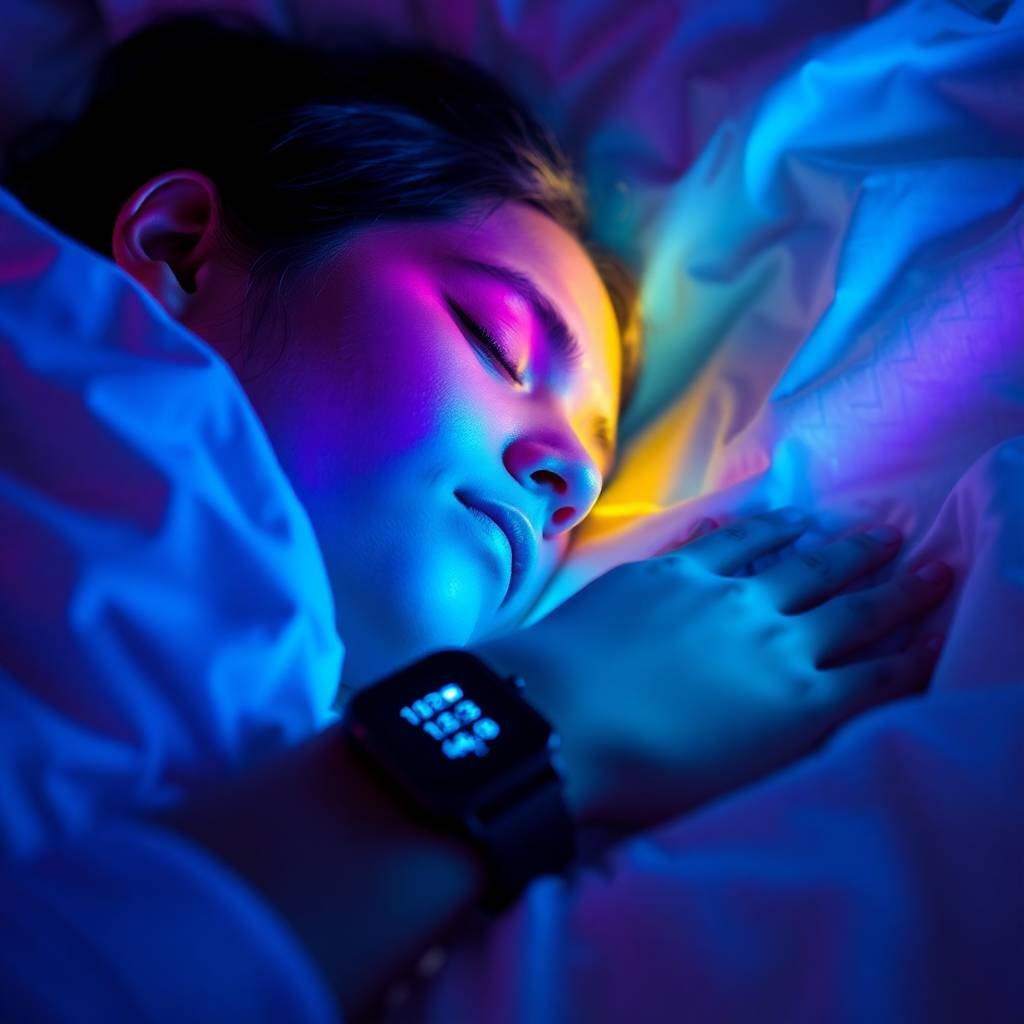Introduction: How AI is Revolutionizing Sleep Monitoring
Sleep is an essential pillar of health, affecting everything from cognitive function to physical well-being. However, millions struggle with sleep disorders or poor-quality rest without fully understanding the underlying causes. Thanks to advancements in artificial intelligence (AI), sleep monitoring devices are becoming smarter and more accurate, providing personalized insights to improve sleep health.
AI-powered devices use sophisticated algorithms to analyze data collected from sensors, delivering detailed reports on sleep stages, disturbances, and overall quality. This technology is transforming sleep care, empowering individuals to take control of their sleep and enabling healthcare professionals to diagnose and treat sleep disorders more effectively.
What Are AI-Enabled Sleep Monitoring Devices?
Understanding Sleep Monitoring Technology
Sleep monitoring devices are designed to track physiological signals such as heart rate, breathing, movement, and brain waves to assess sleep quality and patterns. Early devices provided limited data, mainly focusing on movement or basic heart rate. However, recent innovations have incorporated AI to analyze complex datasets, offering deeper and more accurate insights.
How AI Enhances Sleep Tracking Accuracy
AI leverages machine learning and deep neural networks to interpret sleep data with precision. By recognizing patterns and anomalies, AI can differentiate between sleep stages—such as light, deep, and REM sleep—and identify disruptions like sleep apnea or restless leg syndrome. This level of analysis surpasses traditional methods, providing users with a comprehensive view of their sleep health.
Key Features of AI in Sleep Monitoring Devices
Real-Time Sleep Stage Detection
AI algorithms analyze sensor data in real time to accurately classify sleep stages—light, deep, and REM. This detailed tracking helps users understand how much restorative sleep they are getting each night and identify patterns affecting their rest.
Personalized Sleep Recommendations
Based on individual sleep data, AI generates tailored advice to improve sleep quality. Whether it’s adjusting bedtime routines, optimizing bedroom environment, or suggesting relaxation techniques, these recommendations help users make informed lifestyle changes.
Early Detection of Sleep Disorders
AI-enabled devices can spot early warning signs of common sleep disorders such as sleep apnea, insomnia, and narcolepsy. By alerting users and healthcare providers promptly, these devices facilitate earlier diagnosis and intervention.
Benefits of AI-Powered Sleep Monitoring
Improved Sleep Quality and Health Outcomes
AI-driven insights help users understand their unique sleep patterns, enabling actionable steps toward better rest. Improved sleep quality positively impacts mental health, cognitive function, and physical wellness, reducing risks of chronic conditions.
User-Friendly and Accessible Technology
Modern AI sleep monitors come in wearable forms like smartwatches and rings, or non-contact devices such as bedside sensors and apps. These user-friendly designs ensure comfort and convenience without disrupting natural sleep.
Data-Driven Healthcare Support
AI-generated sleep reports provide valuable data for healthcare professionals, aiding in accurate diagnosis and personalized treatment plans. This integration enhances patient outcomes and supports preventive healthcare strategies.
Challenges and Considerations in AI Sleep Monitoring
Data Privacy and Security Concerns
Sleep data is highly personal and sensitive. Ensuring strong data encryption, secure storage, and clear privacy policies is essential to protect user information from breaches or misuse.
Accuracy Limitations and Validation
While AI improves accuracy, sleep monitoring devices may still face limitations due to sensor quality, user behavior, or environmental factors. Ongoing validation studies and updates are critical to maintain reliability.
Integration with Medical Practices
Bridging the gap between consumer-grade devices and clinical diagnostics can be challenging. Collaborations between tech developers and healthcare providers are needed to standardize data interpretation and use in medical decision-making.
The Future of AI in Sleep Monitoring Devices
Advancements in Sensor Technology and AI Algorithms
Future sleep monitoring devices will incorporate more sophisticated sensors capable of capturing a wider range of physiological data with greater precision. Combined with evolving AI algorithms, this will lead to more accurate and comprehensive sleep analysis.
Integration with Smart Home and Wellness Ecosystems
AI sleep monitors will increasingly connect with smart home devices, such as lighting, thermostats, and sound systems, to create optimal sleep environments automatically. This seamless integration will enhance user comfort and sleep quality.
Expanding Applications Beyond Sleep Tracking
The potential of AI extends beyond sleep monitoring, enabling holistic health tracking by correlating sleep patterns with other metrics like stress levels, nutrition, and physical activity. This comprehensive approach can lead to better overall wellness management.
Conclusion: Embracing AI for Better Sleep and Wellness
AI-powered sleep monitoring devices are transforming how we understand and manage our sleep health. By offering precise, personalized insights and early detection of sleep disorders, these technologies empower individuals and healthcare providers alike. As AI continues to advance and integrate with broader wellness ecosystems, the future promises smarter, more effective tools to help us all achieve restful, restorative sleep—ultimately enhancing our overall quality of life.

